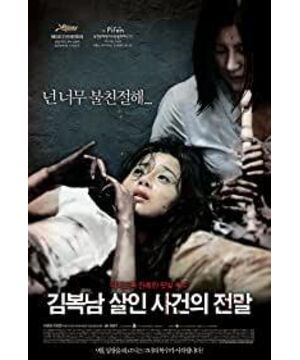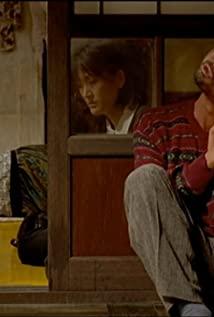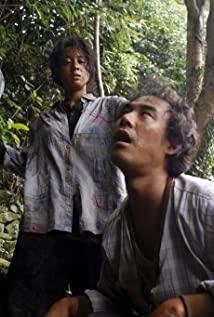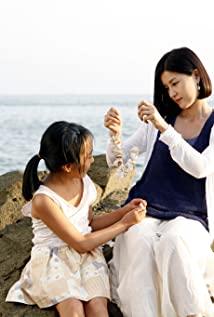"The Beginning and End of the Kim Funan Murder" (hereinafter referred to as "Jin Funan") was and is a crime movie that made countless people sigh and cry. Our moving face is by no means the beautiful "drama" cast of Xu Yingji, nor the "golden" features shown by Zhang Zhexiu, who used to be Kim Ki-duk's assistant, but the life reflected in the story itself.
city and desert island
"Jin Funan" is a film that depicts women's lives. The focus is not on revenge, but on the huge differences in women's status, deformities and discriminated lives that exist in real life.
As Zhang Zhezhu's full-length debut, it more or less inherits the style of Kim Ki-duk: women are the focus of the film, revealing social problems in a cruel and extreme violent way. The ruthless violence shown in the film is just a latent instinctive awareness in people's hearts. More importantly, "Jin Funan" chooses to release the repressed women's call and respect for life while telling the story.
Women's issues are deep and sensitive, and it seems that these kinds of films can shatter the hearts of women who have been devastated. In real life, however, feminism has never disappeared.
"Jin Funan" not only shows the life of the heroine Jin Funan who was arbitrarily trampled on, but also focuses on portraying the differences in the status of women in modern society.
Also born in Wudo, Zheng Haewon, the second female daughter, entered the financial industry in Seoul when she grew up, while Jin Funan lived a life of oppression in the claustrophobic Wudo where people are not like people and ghosts are not like ghosts.
A metropolis full of commercial atmosphere, a desolate and indifferent island; the disparity in the world is the same problem: women's living status in society.
In the high-pressure living environment in Seoul, Zheng Hae-won was squeezed into an indifferent and hypocritical woman by life. She can be mean to clients, or lie and testify in front of the police, but she can't change the bullying incidents of teenage girls that can be seen everywhere in the streets, and she can't resist the threats of street gangsters.
In the final analysis, Zheng Haiyuan is just a "Jin Funan" who lives in a big city.
On the other hand, Jin Funan, who has never left Wudao for half a step since he was born. She was shrouded in the feudal ideology handed down on the island. Women were born lowly, treated as pigs and dogs by her husband, and abused by various schemes and abuses by old aunts; except for digging potatoes, cooking, and washing clothes, she seemed to have no way to change the status quo. .
The metropolitan life in Seoul has always been Kim Bunnam's dream, but Jung Hae-won, who has been on hiatus, chose to return to his hometown for a vacation. Two women with different fates collided, mocking and joking.
male superiority
In Korea, the phenomenon of male superiority over females is very serious. What the movie reflects is just a picture of life. Those domestic violence, abuse, and insults that we can't see happen in every dark house, every night in the dead of night.
On May 19, 2018, the large-scale women's demonstration in Seoul, South Korea, marked the awakening and resistance of women in today's unfair treatment.
Women's demonstration in Seoul, South Korea
The fuse of this parade incident was the "Hongik University body model was secretly photographed" incident. A female model secretly photographed a male model at work and uploaded it to a website called "extreme feminism". After the incident was exposed, the South Korean police The suspect was caught within 12 days.
12,000 female marchers unfurled banners that read "South Korean citizens are not only men, but also women" to protest against South Korea's expedited investigation of cases where the victim is a man, and perfunctory discrimination against cases where the victim is a woman.
The status of women in South Korea has always been low. Although after decades of feminist movements and protests, the status of women in South Korea has improved slightly, but they are still oppressed by men.
Korean women's movement
In real life, in addition to cleaning, cooking, housework and farm work like the heroine in "Jin Funan", Korean women cannot eat at the table, and women with higher education have a very low employment rate due to discrimination.
In 2018, according to a survey among the 36 member countries of the OECD (Organization for Economic Cooperation and Development), the employment rate of Korean women ranked 30th; other data show that although Korean women aged 25 to 34 occupy the largest proportion of the country's higher education level, they Employment rates and wages are far lower than men's.
This kind of discrimination is no worse than that of Seoul, where Jung Hae-won lives in "Kim Funam".
Going back to the film, the island where the heroine Jin Funan lives in the story is also an alienated feudal land where men are superior to women. On the island, only a few men are called pillars, and on the island they are regarded as treasures by the old ladies. Jin Funan not only had to endure a lowly life here, but she was also ravaged and beaten by men.
In the film, in addition to the phenomenon of male superiority and female inferiority, there is also a very serious phenomenon of feudal family sovereignty. Jin Funan's aunt is always at the mercy of her and helps Wan Zong to perjury. As the aunt of the eldest sister, the younger sisters are also obedient to her, looking at her face. This is quite a kind of Cixi model under the ancient Chinese feudal centralized system.
Extremes meet
In Korea, there are many movies and TV dramas that reflect the status of women. "Miss Mermaid" and "The Temptation of Wife" both appear in a family where women bow down to men; mother-in-law speaks to her father-in-law in a low voice, daughter-in-law cleans the house, cooks, and does laundry; Call to drink. Moreover, when eating, the daughter-in-law should stand by and wait.
This kind of plot is the same as Wan Zongna's smearing bee wounds on Jin Funan in "Jin Funan", which is completely full of teasing and teasing. Unhappy is a kick, and when he is happy, Jin Funan is used as a tool to vent.
In the story, Zheng Haiyuan was the one who witnessed the whole process, but when the police came to ask, she pretended not to know. The setting of this character is exactly the opposite of Jin Funan's character, one is frank, pure and sincere; the other is selfish and calculating.
Some people would think that Jin Funan should have left this islandless island earlier after holding back for so long. The letter of help she wrote to Jung Hae Won, who has a book about Seoul, is also described in the film. However, the letter was thrown into the trash by Zheng Hae-won, and Jin Funan's husband Wan Zong never gave her a penny.
In Wudao, she can live numbly, such days are only for the growth of her daughter Yaner. Going out is tantamount to breaking your life in another place full of male superiority and inferiority. However, an unimaginable scene ensued. The husband not only sought out the young lady, but also molested his daughter. At this moment, Jin Funan raised the sickle for the first time, because she saw her daughter falling asleep in her husband's arms, and she let go again with pity.
A film on the theme of female resistance, the climax comes after Jin Funan's daughter is thrown to the stone by Wan Zong to her death. The last straw buried in Jin Funan's heart overwhelmed her forbearance, and all despair, anger, and hatred made her cry wildly.
We always think that we are full of friends, and Jin Funan thinks so too. But all she saw was Zheng Haiyuan's betrayal, aunt's elders' lies and perjury, her husband's scolding, and her brother-in-law's color.
Under the scorching sun, she wanted to use her busyness to anesthetize herself. How could the ridicule beside him intensify, when Jin Funan looked directly at the sun, what did the sun tell her? "If you endure too much, you will get sick." The resistance began from this moment, the sickle slashed across the rainbow, and the blood stained the setting sun.
All the grievances and hatred in my heart are released through the red arc. At this moment, it must also be a release for many viewers. The story told about Jin Funan's too much suffering and discrimination. If she could be treated fairly, perhaps the killing scene would not have happened; but in that environment, there is no fairness. .
In Mayakovsky's words, "When this society pushes you to a corner, don't forget that there is still a road behind you, and that is crime, which is not shameful."
In South Korea, there are more and more film and television works of this kind, and the ideas are becoming more and more profound, and the status and dignity of women are constantly being affirmed; of course, those resistance for freedom and dignity have never stopped.
View more about Kim Bok-nam salinsageonui jeonmal reviews











